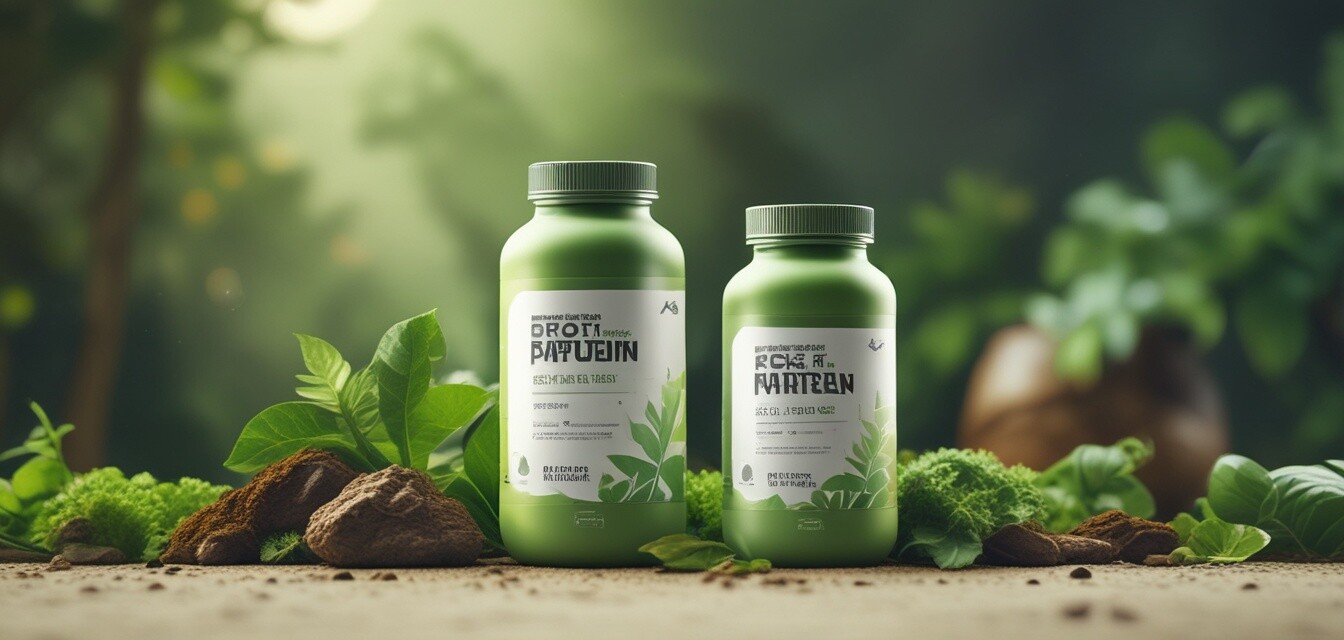
Creating a Sustainable Protein Supplement Routine
Key Takeaways
- Choose ethically sourced protein supplements.
- Adopt eco-friendly packaging practices.
- Incorporate plant-based options into your routine.
- Understand the importance of sustainability in supplement selection.
- Implement practical tips for daily use of protein supplements.
Establishing a sustainable protein supplement routine is more than just a health commitment; it's a promise to our planet. By making mindful choices in the supplements we consume, we can positively impact the environment while supporting our nutritional needs. This guide offers practical tips on how to create a protein supplement routine that is not only beneficial for your health but also kind to the earth.
Why sustainability matters in protein supplements
The protein supplement industry has seen tremendous growth in recent years. As consumers, it’s essential to understand the implications of our choices. Opting for sustainable protein supplements aids in reducing our carbon footprint and supports ethical practices. Here’s why sustainability matters:
- Support ethical production: Choosing brands that prioritize ethical sourcing ensures fair labor and environmental responsibility.
- Reduce waste: Sustainable practices aim to minimize industry waste, from production to packaging.
- Promote renewable resources: Utilizing plant-based sources reduces reliance on animal agriculture, benefiting the planet.
Types of sustainable protein supplements
When selecting protein supplements, it's crucial to consider the source. Here are some popular types of sustainable protein supplements:
| Protein Source | Type | Benefits |
|---|---|---|
| Pea Protein | Plant-based | Rich in iron and helps maintain muscle mass. |
| Hemp Protein | Plant-based | Complete protein that contains healthy fats and fiber. |
| Brown Rice Protein | Plant-based | Allergen-friendly and easy to digest. |
| Egg White Protein | Animal-based | Low-fat, high-quality, complete protein source. |
| Whey Protein (Grass-fed) | Animal-based | High bioavailability and rich in essential amino acids. |
Creating your sustainable protein supplement routine
Establishing a routine doesn't need to be complicated. Here are some steps to follow for a successful and sustainable protein supplement routine:
- Assess your dietary needs: Identify how much protein you require based on your activity level and lifestyle.
- Choose the right supplement: Look for ethically sourced options that align with your values.
- Read labels carefully: Avoid supplements with excessive additives or harmful substances.
- Incorporate into meals: Use protein supplements in smoothies, oatmeal, or baked goods to enhance nutrition.
- Monitor your progress: Keep track of how the supplements fit into your overall health routine and adjust as necessary.
Sustainability practices in your routine
In addition to selecting sustainable protein supplements, consider adopting the following eco-friendly practices:
- Reusable containers: Store your supplements in glass jars or other eco-friendly containers.
- Minimize packaging waste: Buy in bulk or from brands that offer minimal packaging.
- Compostable materials: Choose brands that use biodegradable or compostable packaging for their products.
FAQs about sustainable protein supplements
1. What makes a protein supplement sustainable?
A sustainable protein supplement is made from sources that prioritize ethical production, minimal environmental impact, and support renewable farming practices.
2. Are plant-based proteins better for the environment?
Yes, plant-based proteins typically have a lower carbon footprint compared to animal-based proteins, making them more sustainable options.
3. How can I choose ethical brands?
Research brands that are transparent about their sourcing, production methods, and certifications related to sustainability.
Pros
- Supports a healthier planet.
- Promotes ethical practices.
- Encourages diverse protein sources.
Cons
- May be more expensive than conventional options.
- Limited availability in some areas.
- May require more research to find reputable brands.
Conclusion
Creating a sustainable protein supplement routine is not just about personal health but also about making a positive impact on the environment. As consumers, we hold the power to influence the market by supporting sustainable brands and practices. By following the tips outlined in this article, you can establish a routine that meets your nutritional needs while contributing to the well-being of our planet. For more tips on supplements, be sure to check out our [Sustainability Tips](https://ecodive.com/blog/sustainability-tips) section, along with guidelines on [Vegan Supplements](https://ecodive.com/products/vegan-supplements) and [Herbal Supplements](https://ecodive.com/products/herbal-supplements). Let’s make sustainable choices together!